The Fake Nice Guy Trope
The character who thinks he DESERVES the protagonist
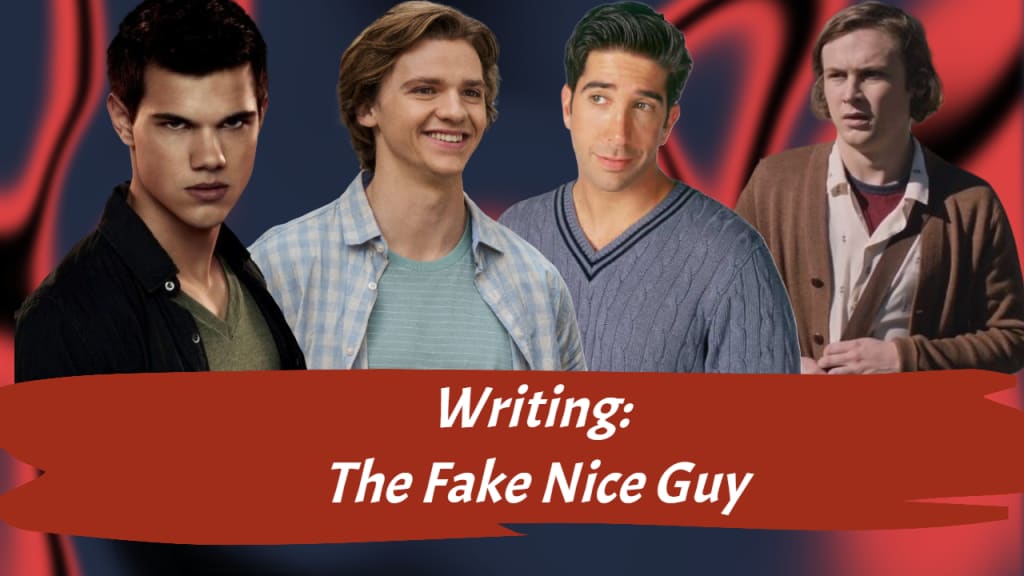
If someone has to say "I'm a nice guy" - chances are they're not. An actual nice guy does not need that validation from others or himself. This character archetype has progressed throughout the years - evolving from the nerdy nice guy whose long waiting game gets the girl, to someone who is called out on his unhealthy traits and now landing on something more sinister.
This writing style can vary from satire to darker psychological stories being explored. Usually these characters are close with the protagonist, harbouring unrequited feelings - that he has not expressed or are not returned from his friend. A nice guy would accept that their feelings aren't returned and either step back from the friendship or start the process of moving on because he has the answer he needed and values the friendship. The Fake Nice Guys are big on the waiting game... they will wait years, with the object of their affections oblivious to their feelings.
Look at Ross from the TV show Friends - He spent thirteen years infatuating adolescent feelings towards Rachel, but never made his feelings known until years later - causing a lot of heartache and pain as the couple embark on a "will they won't they" decade long courtship. Ross and Rachel were the OG opposites attract relationship, but Ross entered this relationship with a childlike mentality - his jealousy, immaturity, inability to communicate and lack of trust inevitably destroyed the relationship.
When Rachel began working at Bloomingdales, Ross showed a really jealous side. He felt that Mark only offered Rachel the job because he wanted to pursue a relationship with her, and even accused her of having an affair. Not only was this insulting to Rachel’s intelligence and skill in the fashion industry, but it showed a tremendous lack of trust. This caused Rachel to tell Ross they needed to take a break, and, after Ross called her and heard Mark’s voice in the background (he had just gone by to console her) he decided to go out and make that huge mistake which led to the iconic “we were on a break!” line.
Ross himself views himself as a Nice Guy, but his actions and dialogue say otherwise. Without realising it, he constantly undermines Rachel's goals and ambitions and sees himself as more accomplished. He feels threatened by her confidence and growing independence, causing him to project his own insecurities rather than be a supportive partner. Despite being in their twenties, Ross's behaviour is almost that of the high school nerd finally dating the head cheerleader - he could not see Rachel as the woman she was becoming, instead subconsciously clinging to his teenage idealisation he had of her.
Often Ross would be quite cruel and possessive due to past breakups and instead drive new love interests away with old insecurities, but his self-pitying attitude was overshadowing those traits throughout ten seasons. This lack of emotional maturity is his ultimate downfall, but Ross is a character who will valiantly try to cling to his nice guy persona.
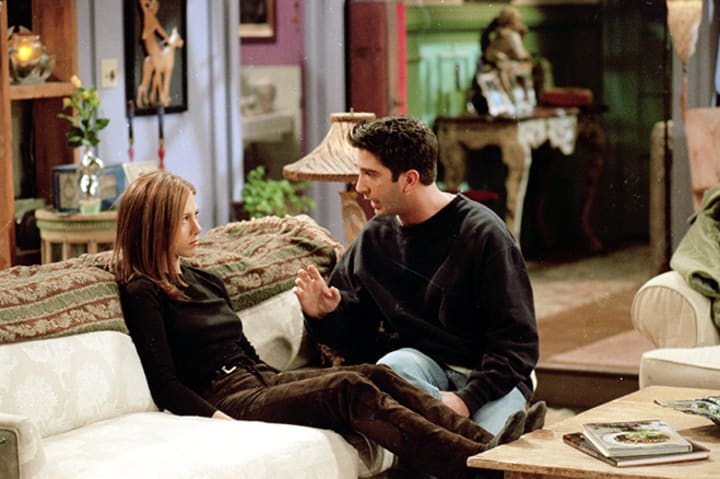
Another Nice Guy who should not be idealised is Jacob Black from the Twilight Saga. Jacob starts out as a genuine Nice Guy, being there for Bella during one of the darkest periods. This is a relationship where it could have headed into a romantic pairing, but he becomes bitter and resentful when Bella chooses Edward over him - often resorting to cruel, snide and manipulative acts in the third and fourth films.
Many fans have recently pointed out how disturbing it was when Jacob kissed Bella without her consent. This scene happens in Eclipse, and it’s a lot worse than many fans remembered from when they read the books the first time. Bella tells Jacob no right away, but he then kisses her anyway. She pushes him off and punches him in retaliation and breaks her hand - in the book this is written for a comedic effect (even showing Charlie praising Jacob for kissing his daughter - to the person who aggressively kissed his daughter), but the film actually shows Bella keeping her agency, Charlie being shocked and Edward jumping to defend Bella's honour... The film handled that aftermath more respectfully, because it was an assault.

Wait, I'm not done with Jacob - he stooped to a new low later on in that film. When both Edward and Jacob show their immaturity - the former staging a moment for Jacob to overhear their engagement and the latter running off hurt - Jacob threatens to kill himself. Using emotional abuse to get her to acknowledge any feelings she might have had is still emotional abuse, but this didn't stop Jacob from doing it. Bella then feels like she has to do anything to keep him alive, so she has him kiss her. In that context, it's bizarre this scene was framed with romantic music and beautiful cinematography - he was a real douche in that moment and she was not exactly enthusiastic for this kiss. If you want your character to be sympathetic, never write them trying to blackmail or guilt-trip someone to be with them, if anything it proves that he does not care for the person they claim to.
In the final instalments, he has a brief moment of nobility bef0re contemplating killing the baby of the woman he loved while grieving - before imprinting on said child, which is another discussion entirely.

Sometimes, the Nice Guy does not direct his abuse at the subject of his affection. In Love Simon, Martin blackmails the titular character to get closer to Simon's friend Abby - constantly threatening to out Simon and his online suiter throughout the film. In another time, Martin would have been deemed the Ross - the quirky awkward guy, pinning for his oblivious female friend. Yet, this is more self-aware by portraying Martin's actions as emotionally manipulative and cruel.
Despite Abby kindly rejecting his declaration of love, Martin cruelly outs Simon to the school and causes a rift between Simon and he's friends - he is shocked that Simon is the victim of bullying because of him, startled that Simon angrily calls him out on the damage he caused. After what his actions, this character should not have been redeemed - no one would have been so forgiving in the real world.
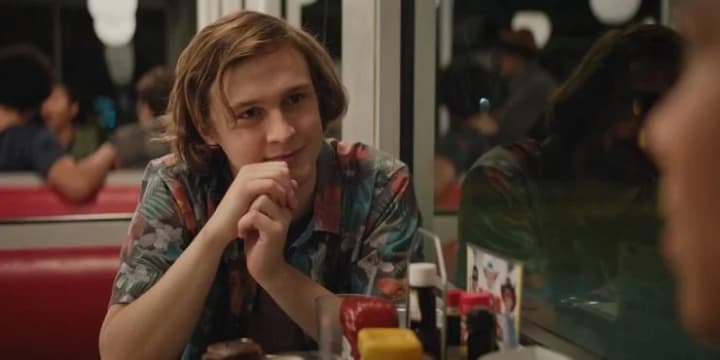
Meanwhile in Netflix's The Kissing Booth, I feel the real antagonist is Lee. Elle and Lee's friendship is literally defined by a list - which he insists on sticking to the rules they wrote as children. When his best friend and brother fall for each other, his jealousy and resentment causes them to breakup. The big problem with this character, he would have been perfectly content with this - even when he sees how much this hurts two people he cares about.
Granted, this film made no sense, had ridiculous character arcs, cliché writing and was steeped in its Wattpad origins - but this character bothered me more than his Bad Boy brother. His selfishness, immaturity and possessiveness not only affects his brother's happiness but he tries to guilt-trip the heroine when she is considering going to a different university. This character would be a massive red flag in real life, but his character is written as a Nice Guy... which he's really not.
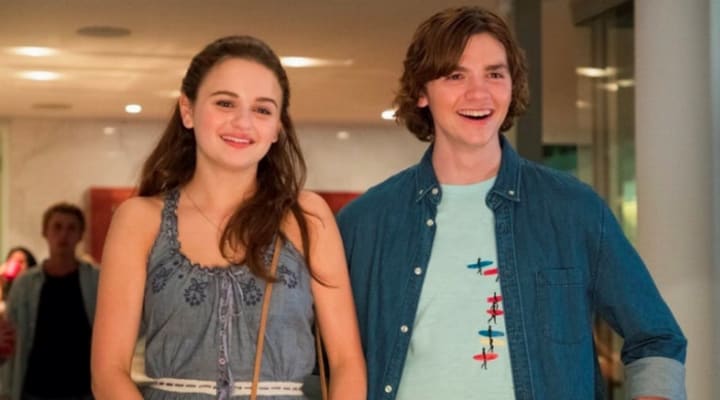
Thankfully, this trope is being continuously analysed and debated over - not many people are keen on the nice guy who demonstrates these traits. There are many characters who I could also discuss - I may have to return to this trope - but when writing, be aware that self-proclaimed nice guy can have a darker side than can influence the plot.
I'd highly recommend director and writer Emerald Fennell's, rape-revenge satire Promising Young Woman, which won the best original screenplay Oscar at the 93rd Academy Awards in Los Angeles. Fennell's screenplay delves into the Fake Nice Guy trope in complex and dark scenes.
About the Creator
Enjoyed the story? Support the Creator.
Subscribe for free to receive all their stories in your feed. You could also pledge your support or give them a one-off tip, letting them know you appreciate their work.


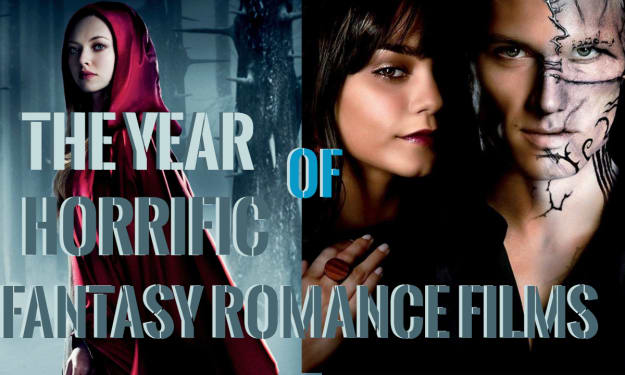



Comments
There are no comments for this story
Be the first to respond and start the conversation.